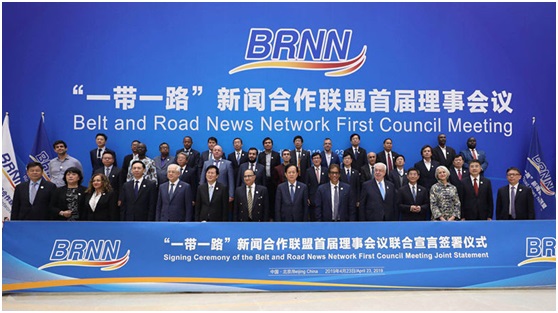Dzmitry Zhuk, director and editor-in-chief of Belarus Today Publishing House, said that readers of their newspaper and website are interested in China-related news and the website has started a section to publish such stories.
Jacqueline Lampe, CEO of RNW Media in the Netherlands believed the BRNN can play a joint important role in positioning the BRI from a very neutral perspective and make sure that European people understand what the purpose is and how China can contribute to building a better world while reducing misunderstandings.
Representatives of Media from different countries in the Signing Ceremony of the Belt and Road News Network (BRNN) First Council Meeting. (Photo by Xu Ye from People’s Daily












Leave a Comment